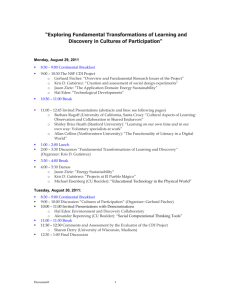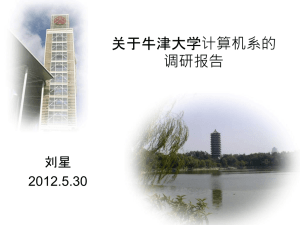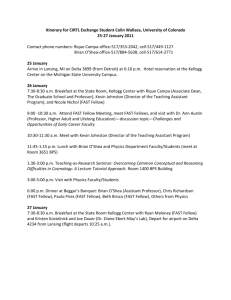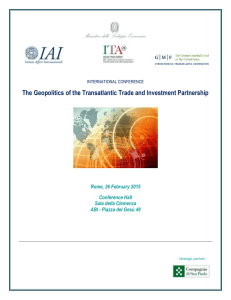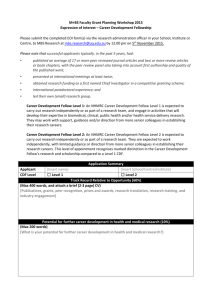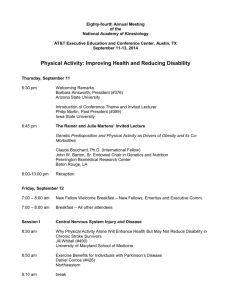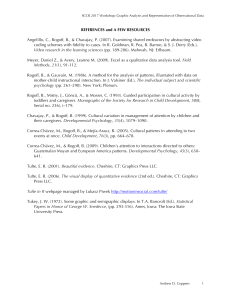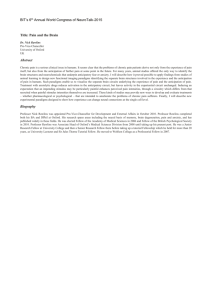Barbara Rogoff`s PPT
advertisement
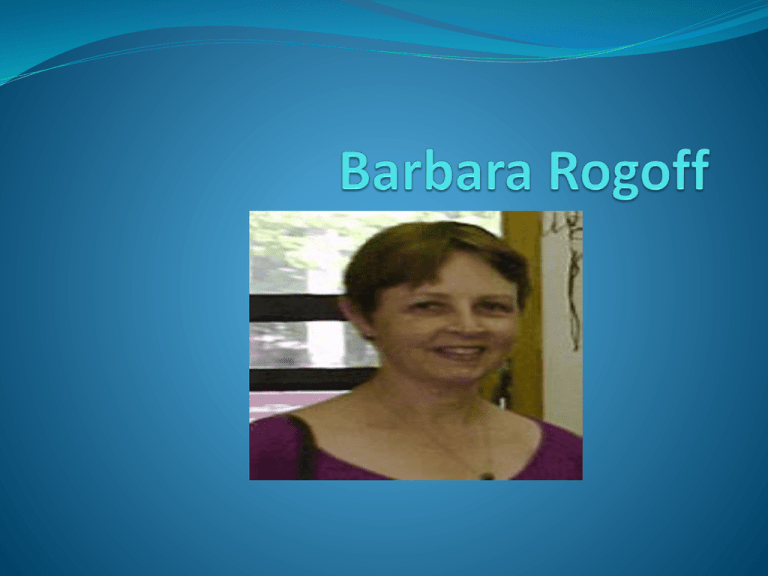
Barbara Rogoff Received Ph.D. in 1977- Harvard University Psychology Professor at the University of California Santa Cruz Foundation (UCSC) since 1992 Held the University of California Presidential Chair from 2003-2006 Sociocultural Theory Lev Vigotsky’s Theory- 1920’s and 1930’s --Human activities and skills take place in cultural contexts. --Development is mediated by language and other cultural factors. --Within their own historical development. Dr. Rogoff’s Concept --Community Participation Rogoff’s Concept More than 25 years studying children’s learning. Children learn through engagement. Specializes in cultural aspects of child development. Adults as guides and sharing problem solving. Organizations Fellow of the American Psychological Society Fellow of the American Anthropological Association Fellow of the American Psychological Association Study Section member for the National Institute of Child Health and Human Development Past Fellow of the Center for Advanced Study in the Behavioral Sciences Kellogg Fellow Spencer Fellow Osher Fellow of the Exploratorium Committee member on the Science of Learning for the U.S. National Academy of Science Accomplishments Editor of Human Development Editor of the Newsletter of the Society for Research in Child Development Received the Scribner Award from the AERA for her book “Apprenticeship in Thinking” Received the William James Book Award of the American Psychological Association for her book “The Cultural Nature of Human Development” Published Books Apprenticeship in Thinking (1990) The Cultural Nature of Human Development (2003) Learning Together: Children and Adults in a School Community (2004) Conducting Research CILS- Center for Informal Learning and Schools Elementary School in Salt Lake City, UT UCSC Dr. Rogoff’s Research Group Cultural variation in learning processes. Indigenous-heritage communities --Central America --North America Structure of informal learning --Schooling not prevalent --Innovative elementary schools Planes of Analysis 1. Individual- Apprenticeship plane 2. Interpersonal- Guided participation 3. Community/Cultural- Participatory Appropriation Thank You Questions?

